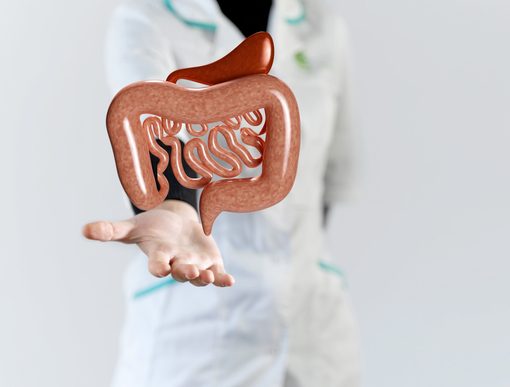More than a gut feeling
Featured Products Promotional FeaturesPosted by: Dental Design 28th March 2023

We are all aware of the increasing interconnections between oral and systemic health. It seems that new studies linking plaque bacteria to serious health problems emerge on an almost daily basis – all great research that we should be keeping on top of an informing our patients about.
In a similar vein, however, it’s also a smart idea to speak to patients about the link between oral health and health problems that can cause long-term issues rather than presenting an immediate emergency. For example, I recently read a piece that highlighted the link between tooth loss and inflammatory bowel disease.[i]
This article, which assessed the results from multiple studies, collated information that concluded that periodontal disease and any form of inflammatory bowel disease had a distinct relationship, with all oral disease significantly aggravating the bowel disease in question.
But just how common are bowel conditions and how can this information make a difference?
Inflammatory bowel disease in the UK
First of all, it’s important for us to look more closely at the conditions that fall under the umbrella of inflammatory bowel disease. This term usually includes both ulcerative colitis and Crohn’s disease – two similar but different disorders. The term can also encapsulate a less serious condition – irritable bowel syndrome (IBS).
The main difference between the conditions is the part of the digestive system they affect and the severity of the problem. IBS usually only causes minor issues like bloating or diarrhoea. On the other hand, both ulcerative colitis and Crohn’s disease are long-term conditions that cause significant health problems, for example extreme weight loss, fatigue, pain cramps and swelling.[ii] Ulcerative colitis only affects the colon (the large intestine) while Crohn’s disease can impact any part of the digestive system, all the way from the mouth to the anus.
In the UK, it’s thought that 1 in 123 people have either of these long-term conditions. This means that there are currently almost half a million people in the nation trying to manage these problems and live normal lives.

Management of inflammatory bowel disease
Currently, people suffering from these conditions are presented with few solutions. There is no definitive cure for either of them, and instead people need to learn how to manage the symptoms throughout their lives.
Sufferers are often prescribed aminosalicylates or mesalazines – drugs specifically developed to reduce inflammation in the gut. Another option is the use of immunosuppressants such as steroids or azathioprine – these help to reduce the activity of the immune system, preventing flare ups. Antibiotics are also sometimes utilised, but with issues such as antimicrobial resistance becoming more pertinent, these are becoming a less common solution.
Despite these measures, it’s thought that as many as 1 in 5 individuals don’t improve with the help of medicine.[iii] So what can we as dental professionals do to help?
A dentist’s role in wider health
It’s becoming more and more clear that a holistic approach to healthcare is the future. We’ve long been told that poor oral health is instrumental in a plethora of systemic health problems, and this research surrounding inflammatory bowel disease only confirms this.
The difference here is that these conditions are lifelong problems that currently have no cure. As such, effective oral health management could be literally life-changing for individuals suffering from them, especially if it does help to reduce their symptoms and make these problems easier to manage.
Perhaps it’s time to speak to patients more candidly about their health issues and really delve deep into the wider health picture. If we talk to individuals about any health problems they have, we could, in turn, help manage conditions such as these if we share the correct information with them. There’s also an element of prevention here – when we see patients with poor oral health, how often are we warning them against more than just oral health problems? For instance, if someone has periodontitis, are we telling them this could increase their risk of having a heart attack or developing a condition like Crohn’s disease? There’s so much scope here for us to help people genuinely improve their quality (and even longevity) of life.
Just part of the solution
At the end of the day, holistic healthcare is definitely something I’m passionate about. There are numerous hurdles to overcome that will probably take a long time to achieve, but that doesn’t mean that we can’t take the first baby steps by talking to our patients candidly about health on a wider scale.
Only time will tell what will come to pass, but there’s huge potential for all healthcare personnel to work together for a better future.

For further information please call EndoCare on 020 7224 0999
Or visit www.endocare.co.uk
EndoCare, led by Dr Michael Sultan, is one of the UK’s most trusted Specialist Endodontist practices. Through the use of the latest technologies and techniques, the highly-trained team can offer exceptional standards of care – always putting the patient first. What’s more, EndoCare is a dependable referral centre, to which dentists from across the country send their patients for the best in specialist endodontic treatment.
[i] Medical Xpress. Studies show strong link between tooth loss and inflammatory bowel disease. Link: https://medicalxpress.com/news/2022-12-strong-link-tooth-loss-inflammatory.html [Last accesseed December 22].
[ii] NHS. Inflammatory Bowel Disease. Link: https://www.nhs.uk/conditions/inflammatory-bowel-disease/ [Last accessed December 22].
[iii] NHS. Inflammatory Bowel Disease. Link: https://www.nhs.uk/conditions/inflammatory-bowel-disease/ [Last accessed December 22].








